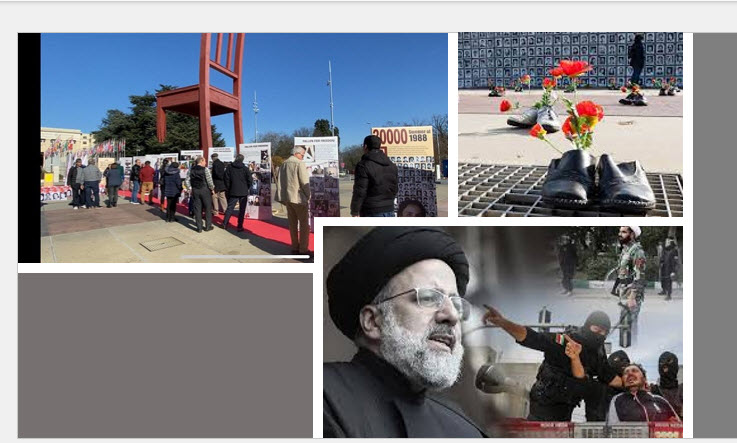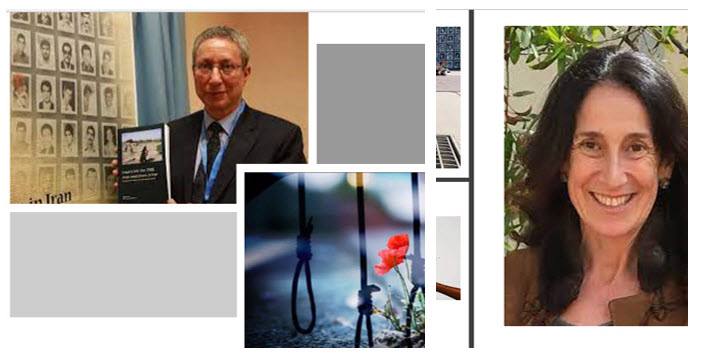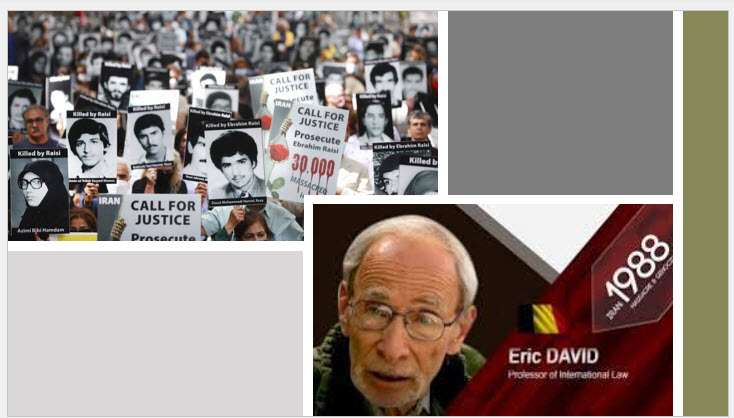
In this gathering, former UN judges, special rapporteurs, UN officials, notable jurists, and human rights figures were among those who participated.
On the first day of the United Nations Human Rights Council’s 49th session, a dozen famous human rights defenders and organizations attended a virtual conference, highlighting concern over Iran’s poor human rights situation. Former UN judges, special rapporteurs, UN officials, notable jurists, and human rights figures were among those who demanded an independent UN investigation into the massacre of 30,000 political prisoners in 1988, which amounted to genocide and a crime against humanity.
A rally and big photo exhibition about the 1988 massacre and the call to action took place in Geneva at the same time as the virtual conference, which was coordinated by five NGOs. This gathering at Place des Nations, in front of the UN’s European headquarters, was attended by some of the massacre survivors and victims’ families.
The conference comes just weeks after 470 former UN judges and special rapporteurs signed an open letter to the UN Security Council and Michelle Bachelet, the UN High Commissioner for Human Rights, calling for an investigation into the 1988 genocide, particularly the role of Iran’s current president, Ebrahim Raisi.
Raisi was a member of the “Death Commission” in Tehran. The “Death Commissions,” formed in response to a fatwa issued by the regime’s then-Supreme Leader Ruhollah Khomeini, were entrusted with identifying supporters of the People’s Mojahedin of Iran (PMOI / MEK Iran) and sending them to the gallows.

In 1988, Raisi the current president of mullahs was a member of the “Death Commission” in Tehran.
The deteriorating human rights situation was also examined during Monday’s conference, with special attention paid to the substantial increase in executions, including those of women and juvenile offenders, during Raisi’s presidency, as well as foreign reactions.
“The 1988 massacre was a premeditated crime,” Tahar Boumedra, former Director of the UN Assistance Mission in Iraq’s Human Rights Office, said during the conference, referring to Khomeini’s fatwa in 1988. Prof. Annalisa Ciampi, the former UN Special Rapporteur on the Rights to Freedom of Peaceful Assembly and Association and Ad hoc Judge of the European Court of Human Rights, was the following speaker. Prof. Ciampi demanded an investigation and accountability for the events of 1988, as well as subsequent crimes against humanity, like the 2019 cold-blooded killing of demonstrators. Prof. Ciampi continued, “The UN cannot avoid its role.”

Prof. Ciampi demanded an investigation and accountability for the events of 1988, as well as subsequent crimes against humanity, like the 2019 cold-blooded killing of demonstrators. Prof. Ciampi continued, “The UN cannot avoid its role.”
The Vice President of the French Parliamentary Group for a Free Iran, Herve Saulignac, referred to Ebrahim Raisi’s presidency and criticised Iran’s system of impunity, underlining that “this impunity cannot continue any longer.”
The situation is significantly worse when it comes to women. Sarah Noury, a member of the Paris Bar Association, spoke next, emphasizing the dire situation of Iranian women. “The Iranian regime’s regulations are misogynistic, and they have a direct impact on Iranian women and girls… Women will have no protection under the ruling theocracy.”
The next panelist was Prof Eric David, a renowned Prof. of international criminal law. He also joined his colleagues in demanding for the Iranian regime’s officials to be held accountable for war crimes. “The current situation in Iran with regard to human rights is a crime against humanity.” the Iranian regime’s leaders must be held accountable for many of the human rights violations.

Prof. David emphasized that the Iranian regime’s leaders must be held accountable for many of the human rights violations.
Applying the Universal Jurisdiction, as in the instance of Hamid Noury, an ex-prison officer, is one way to hold Iran’s ruling theocracy accountable. He was detained in Sweden in 2019 and is facing charges for his role in the Genocide of 1988.
Many speakers, including Prof. Alfred-Maurice de Zayas, a former UN Independent Expert on the Promotion of a Democratic and Equitable International Order, welcomed this proposal. “Justice must be served in all respects, particularly for the victims’ families.” Everyone has a right to hear the truth about the massacre in 1988, and the investigation should include all victims. Raisi’s role in the 1988 massacre must be prosecuted under Universal Jurisdiction, he argued.
The panelists at Monday’s seminar emphasized the international community’s responsibility to hold Iran’s homicidal regime accountable for its crimes against humanity. They urged a tough stance toward Iran’s regime and emphasized the importance of an independent investigation into the 1988 massacre and other atrocities committed by Iran’s governing theocracy.
MEK Iran (follow us on Twitter and Facebook), Maryam Rajavi’s on her site, Twitter & Facebook, NCRI (Twitter & Facebook) and People’s Mojahedin Organization of Iran – MEK IRAN – YouTub

